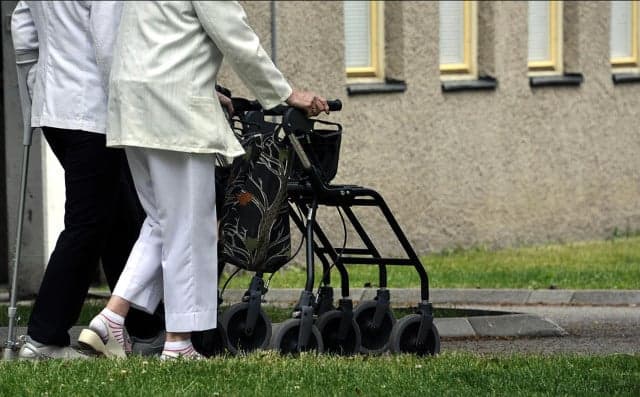Better treatment and education reduce dementia levels, Swedish study shows

A new study in Sweden shows that dementia levels among the country's 85-year-olds have dropped thanks to better treatment and higher levels of education.
The research by Gothenburg University, which compared the results of two previous studies, showed that between 1986 and 2008 there was a drop in dementia levels among 85-year-olds from 30 percent to 22 percent.
"It's a pretty dramatic decrease. The difference is biggest when it comes to vascular dementia, which is caused by strokes and damage to cerebral blood vessels," the study's research director Ingmar Skoog told news agency TT.
The researchers say the change among people in the 85 age group is partly because stroke treatment has improved. In the past stroke sufferers had a 4.5 times higher risk of dementia than others, but today the figure is down to 1.8 times higher.
Better levels of education compared to the 1980s could also play a role:
"When we compared levels of education we noticed that a higher level reduced the risk of dementia. It's likely to do with those with higher education training their brain, so you have a bigger reserve to take from if you get sick or have a stroke. Something you do in the first 25 years of your life becomes important sixty years later".
Higher levels of exercise and eating more nutritious food is also thought to have an impact.
In real terms however the number of people with dementia continues to grow in line with the world’s aging population. Today there are around 40 million people suffering from it, but by 2050 that is expected to grow to 140 million.
"The interesting thing our research shows though is that action taken on a societal level – better education, better treatment of strokes and earlier detection of high blood pressure – can have a big impact. So the increase could perhaps be limited to 125 million people instead of 140 million," Skoog concluded.
Comments
See Also
The research by Gothenburg University, which compared the results of two previous studies, showed that between 1986 and 2008 there was a drop in dementia levels among 85-year-olds from 30 percent to 22 percent.
"It's a pretty dramatic decrease. The difference is biggest when it comes to vascular dementia, which is caused by strokes and damage to cerebral blood vessels," the study's research director Ingmar Skoog told news agency TT.
The researchers say the change among people in the 85 age group is partly because stroke treatment has improved. In the past stroke sufferers had a 4.5 times higher risk of dementia than others, but today the figure is down to 1.8 times higher.
Better levels of education compared to the 1980s could also play a role:
"When we compared levels of education we noticed that a higher level reduced the risk of dementia. It's likely to do with those with higher education training their brain, so you have a bigger reserve to take from if you get sick or have a stroke. Something you do in the first 25 years of your life becomes important sixty years later".
Higher levels of exercise and eating more nutritious food is also thought to have an impact.
In real terms however the number of people with dementia continues to grow in line with the world’s aging population. Today there are around 40 million people suffering from it, but by 2050 that is expected to grow to 140 million.
"The interesting thing our research shows though is that action taken on a societal level – better education, better treatment of strokes and earlier detection of high blood pressure – can have a big impact. So the increase could perhaps be limited to 125 million people instead of 140 million," Skoog concluded.
Join the conversation in our comments section below. Share your own views and experience and if you have a question or suggestion for our journalists then email us at [email protected].
Please keep comments civil, constructive and on topic – and make sure to read our terms of use before getting involved.
Please log in here to leave a comment.